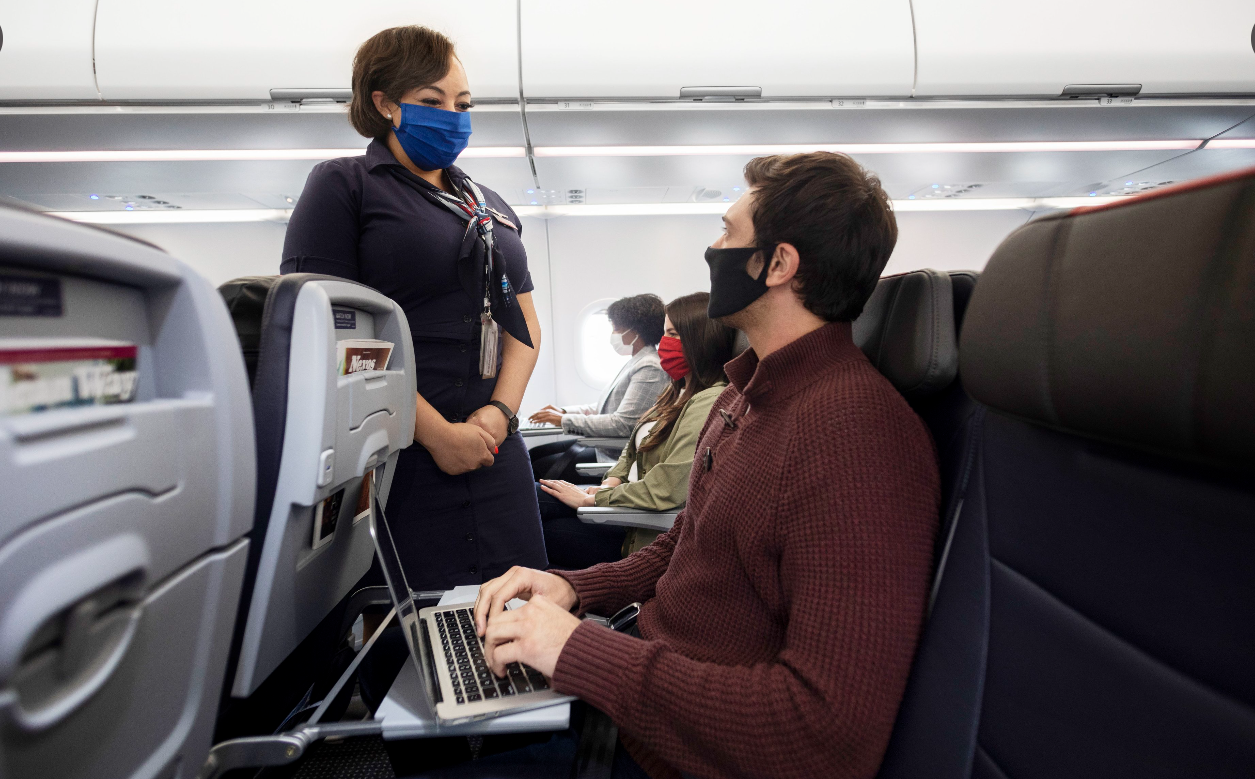
The union representing American Airlines pilots wants the U.S. government to subsidize load-factor caps across the industry, an approach that would help stabilize airline finances while ensuring social distance in cabins.
Under the Allied Pilots Association’s (APA) Safe Essential Air Transportation Seating proposal, the government would buy enough seats on domestic flights to ensure no passenger has to sit next to a stranger during the ongoing COVID-19 pandemic.
In practice, this would require the government to purchase all middle seats for mainline single-aisle jets configured in the common 3-3 layout, and all aisle seats on regional jets configured in a 2-2 layout. Load factors would be capped at around 65% for the former and 50-65% for the latter.
The APA proposal would see carriers reimbursed according to their 2019 cost per available-seat-mile (CASM) levels, meaning network carriers with higher unit costs would receive a greater payout than ULCCs with lower operating costs. The union said weighting the compensation according to CASM levels would be a “market-neutral way of assuring economic viability ... while maintaining the relative strengths and weaknesses of each carrier.”
The plan calls for the number of empty seats purchased by the government to decrease as COVID-19 immunity increases. For example, once immunity is known to be 50-75% domestically, the portion of blocked seats would fall to 15%, and then be eliminated once immunity exceeds 75%.
The APA also sees the proposal as a means to soften the financial impact likely to occur when Coronavirus Aid, Relief and Economic Security (CARES) Act payroll support funds end on Sept. 30, possibly reducing the need for wide-scale layoffs.
APA spokesman Gregg Overman said the union has floated the scheme with American Airlines management, other employee unions and lawmakers on Capitol Hill.
“We think this proposal is far preferable to another blank check with a beginning and end date,” Overman said. “Nobody can predict with any certainty how long this pandemic will last, so something flexible like this makes a lot of sense.”
In the meantime, some U.S. airlines are blocking off seats and limiting load factors in the absence of a federal mandate. Delta Air Lines and Southwest Airlines have both committed to blocking off middle seats through Sept. 30. American Airlines is not blocking off all middle seats but is limiting the number of tickets it sells per flight. United Airlines has not placed a hard cap on load factors but is alerting passengers in advance of flights that are filled to 70% of capacity or more and allowing them the opportunity to re-book on less-crowded flights.

